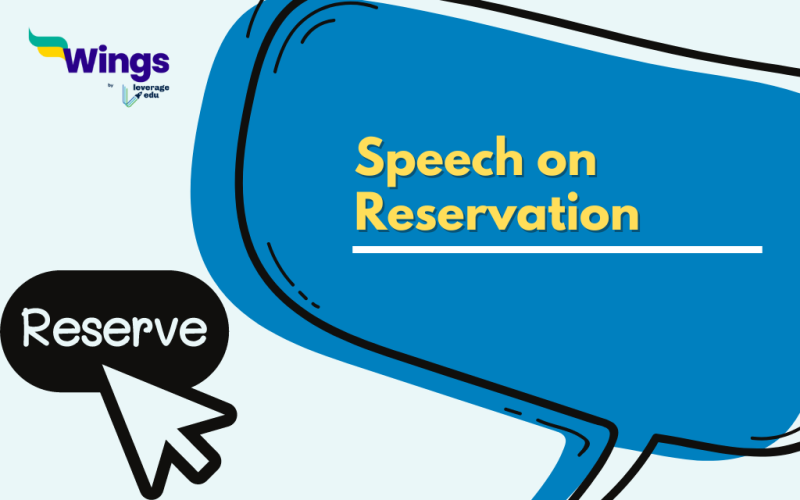Reservation means the act of reserving something. This can be a dining table at a fancy restaurant, a parking slot, or even jobs and seats in educational institutions, especially in the case of India. Reservations were introduced in India to uplift the underprivileged. All of these categories include Scheduled Castes (SC), Scheduled Tribes (ST), Other Backward Classes (OBC), and Economic Backward Classes (EWS). In this section, we will discuss the reservation speech and discuss it thoroughly.
3-Minute Speech on Communism and Gender Equality
| ‘Good morning, respected teachers and friends. Today I would like to present my views on one of the most debated topics in our country: Reservation. Reservation is the act of implementing policies to benefit underprivileged groups, which was started during British rule. It supports the representation of historically disadvantaged groups in education, employment, and government services. Reservations in India offer 60% of seats to people belonging to ST, SC, OBC, and EWS. Scheduled Castes (SC) are given 15% of the reserved seats in jobs and higher education institutions, while Scheduled Tribes (ST) have 7.5%. Other Backward Classes (OBC) are given a 27% quota in jobs and higher education, while Economic Backward Sections (EWS) receive a 10% quota. The initial objective of introducing reservations was to eliminate discrimination and social injustice in India and to ensure that people of all castes are represented equally in all Indian services. However, this policy has led to many debates and controversies. Some individuals welcome this because it encourages the upliftment of communities that have faced discrimination in the past. Others say it is an issue of concern as it promotes inequality. Reservations were first introduced in India in 1882 by William Hunter and Jyotirao Phule. Although it was added to our constitution right after independence by Dr Bhimrao Ramji Ambedkar. After independence, Dr B.R. Ambedkar drafted a legal framework to introduce a reservation policy only for SC and ST for the first ten years. However, the period was later extended, and OBCs were included in 1991, following the Mandal Commission. There have been a lot of amendments in the acts for reservation, which led to a new controversy between different communities. So what do you think, reservation benefits the underprivileged or makes them more privileged? Is it about promoting equality, or is it about the general population who suffers from inequality? We have to focus on our vision, which is the create a society where everyone is equal, maybe not in terms of wealth, but social status. Thank You!’ |
Also Read: Speech on The Best Lesson I Have Learned
Reservation Distribution in India
The Indian government has given the underprivileged sections of reservations in education and jobs to uplift them. The table below highlights the reservation percentage for each Indian community.
| Category | Reservations in Jobs/Higher Educational Institutions (as of March 2021) |
| Scheduled Castes (SC) | 15% |
| Scheduled Tribes (ST) | 7.5% |
| Other Backward Classes (OBC) | 27% |
| Economic Backward Sections (EWS) | 10% |
Also Read: Short Speech on Technology for School Students
FAQs
A.1 Reservation is the act of implementing policies to benefit underprivileged groups, which was started during British rule. It supports the representation of historically disadvantaged groups in education, employment, and government services.
A.2 The initial objective of introducing reservations was to eliminate discrimination and social injustice in India and to ensure that people of all castes are represented equally in all Indian services.
A.3 This policy has led to many debates and controversies. Some individuals welcome this because it encourages the upliftment of communities that have faced discrimination in the past. Others say it is an issue of concern as it promotes inequality.
Popular English Speech Topics
For more information on such interesting speech topics for your school, visit our speech writing page and follow Leverage Edu.
 One app for all your study abroad needs
One app for all your study abroad needs













